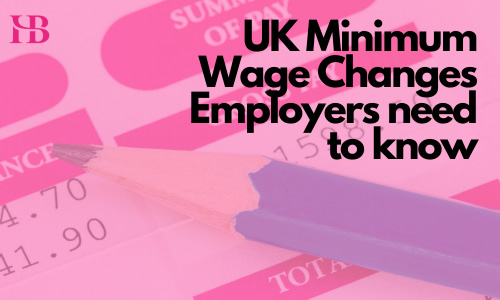It was estimated earlier this year that £4.46 billion* would be collected through income tax and National Insurance (pre-Covid, of course!). Payroll is integral to the workings of your business and the country. Last week was nominated National Payroll Week, and we’re giving a big shout out to all payroll managers, especially to our own, very special Payroll Jane.
*https://obr.uk/efo/economic-and-fiscal-outlook-march-2020
How can payroll help keep your employees happy & save your business money
Were you aware that payroll can play a strategic role in saving your business money? And it always helps you create happy and motivated employees. Yes, payroll. Many people are unaware that the payroll function is far greater than pushing a button to pay salaries or send information to HMRC: it also processes a whole host of very useful data and it supports your team.
Paying your employees on time and correctly is so important as it shows them that you value all that they do for you. There are a whole range of benefits that you can offer your team – from cycle-to-work schemes, salary sacrifice and eye test cover – most of which are monitored by HR and payroll, that will add to your employee proposition. When your payroll is managed by qualified professionals – either in-house or outsourced to experts – you can be assured that your most important assets are being paid correctly on time and you are complying with all relevant regulations.
How can payroll help with compliance in your business
Payroll also helps by ensuring compliance and managing reporting – so by including these as objectives and measuring their success within this department, you can carefully manage another important aspect of your business.
Strategically, your payroll can also help with strategic planning. Salaries and expenses are likely to be the largest combined costs faced by your business. They show leaders very quickly where their budget is being spent and understand how much money they have to invest in other areas. This is particularly important for companies with multiple departments or where employees are scattered across the country or even the world, operating in different time zones and subject to different tax regimes.
From happier employees who can enjoy a range of benefits that boost morale – to unique insights into your business expenditure that can be used as part of your strategic decision making, payroll clearly has a very important role to play in your business and it may be worth taking another look at what is currently in place.
Payroll: tax & legislative requirements
If payroll fills you with dread due to the ever-changing tax and legislative requirements, consider outsourcing your payroll for considerable cost savings, efficiency and enjoy happy loyal employees. It allows you to concentrate on your business without this additional administrative burden.
HB Accountants’ very own Payroll Manager Jane could be the answer to your problems – do get in touch to see how we can work with you – directors@hbaccountants.co.uk
Our Covid19 hub is still available to any business that needs accounting support and our team is on hand for bespoke consultations.
Visit our COVID19 Business Hub for more information
For financial and accounting guidance and support, please contact Keith or Karen. We’re still working hard to help you make the right decisions.
Or call 01992 444466 or email directors@hbaccountants.co.uk for help. We look forward to hearing from you.
Latest Blogs from HB Accountants
The information contained above is for general guidance purposes only. Whilst every effort has been made to ensure the contents are accurate, please note that each individual has different circumstances and it is essential that you seek appropriate professional advice before you act on any of the information contained herein. HB Accountants can accept no liability for any errors or omission or for any person acting on or refraining from acting on the information provided in the above




